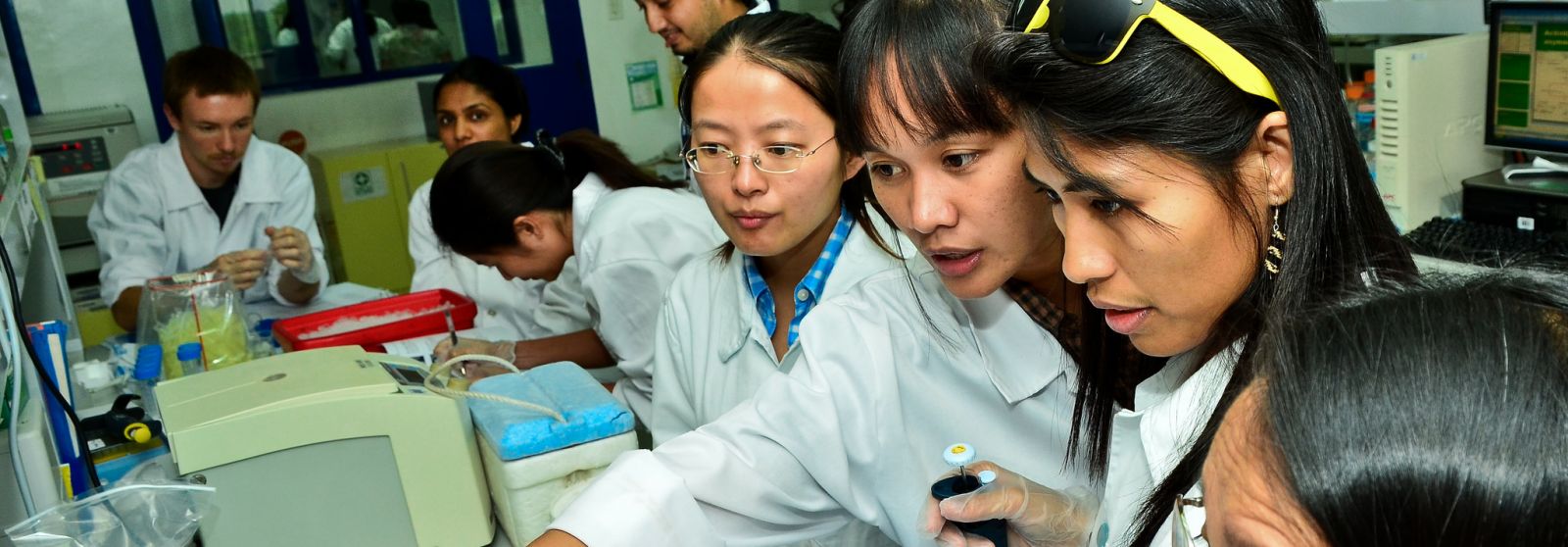
The International Rice Research Institute (IRRI) is the world’s premier research organization dedicated to reducing poverty and hunger through rice science; improving the health and welfare of rice farmers and consumers; and protecting the rice-growing environment for future generations. IRRI is an independent, nonprofit, research and educational institute, founded in 1960 by the Ford and Rockefeller foundations with support from the Philippine government. The institute, headquartered in Los Baños, Philippines, has offices in 17 rice-growing countries in Asia and Africa, and more than 1,000 staff.


Working with in-country partners, IRRI develops advanced rice varieties that yield more grain and better withstand pests and disease as well as flooding, drought, and other harmful effects of climate change. More than half of the rice area in Asia is planted to IRRI-bred varieties or their progenies. The institute develops new and improved methods and technologies that enable farmers to manage their farms profitably and sustainably, and recommends rice varieties and agricultural practices suitable to particular farm conditions as well as consumer preferences. IRRI assists national agricultural research and extension systems (NARES) in formulating and implementing country rice sector strategies.

Alumni of IRRI's educational initiatives include some of the world's leading rice scientists as well as high-level NARES and agriculture ministry officials. From 1962 to 2019, more than 300,000 students, researchers, farmers, and extension professionals, among others, received some form of training from IRRI and its partners. Within this total number, more than 2,000 scholars conducted research at the institute while pursuing their MS and PhD degrees. As free educational resources, books co-published by IRRI available online have received a total of about 6.2 million views with more than 50 million page views since 2007.
We work worldwide with all research institutions that share our goal. In particular, we work with the national agricultural research and extension systems of the countries where our target beneficiaries live. Rice research has no political boundaries. We search for new solutions to both old and emerging problems through personal and institutional efforts and through partnerships with farming communities and other institutions, both public and private.

IRRI is a member of CGIAR , a global research partnership committed to a food-secure future.
The Institute is the lead center for the CGIAR Research Program on RICE (RICE CRP).
IRRI is also a member of the following CGIAR research programs:

